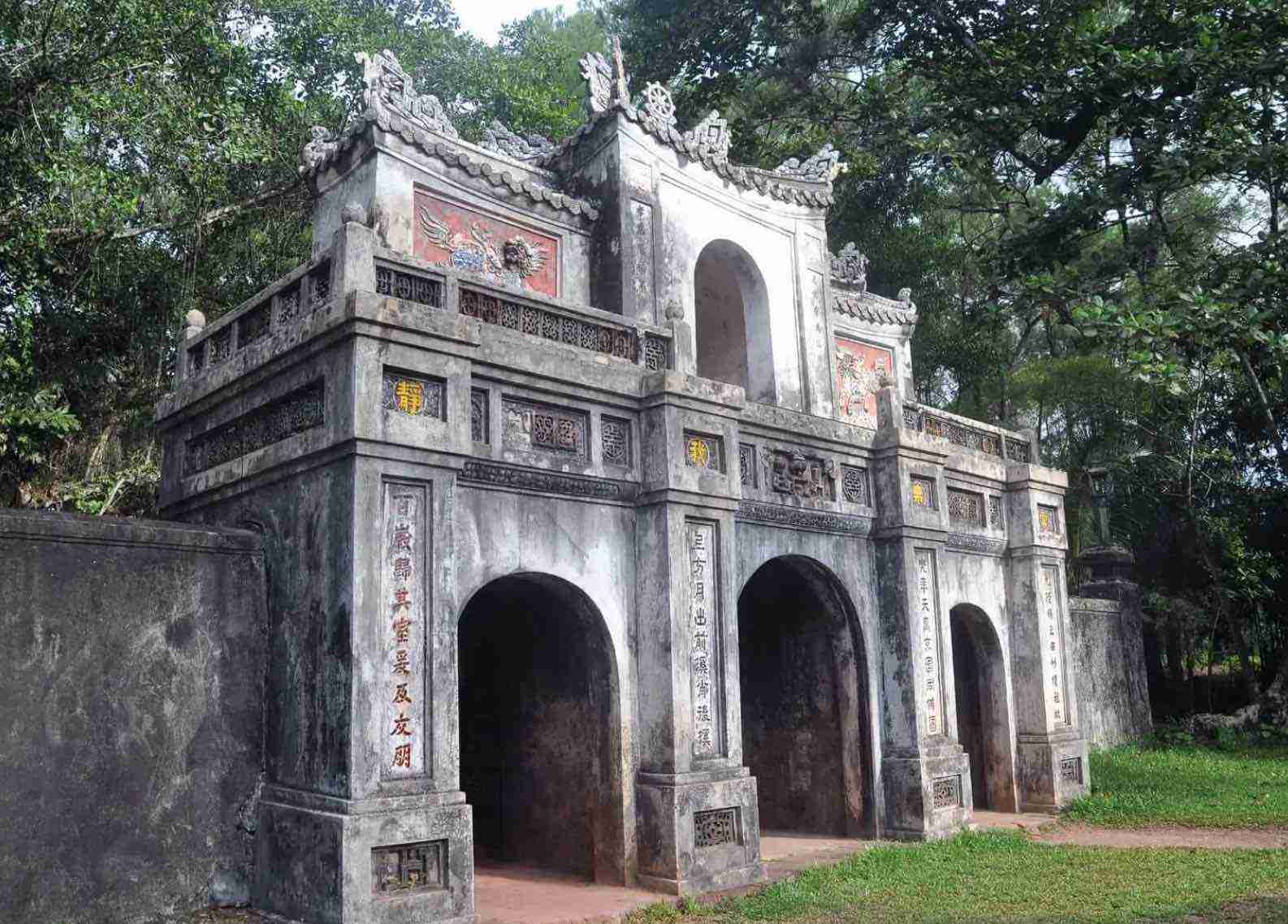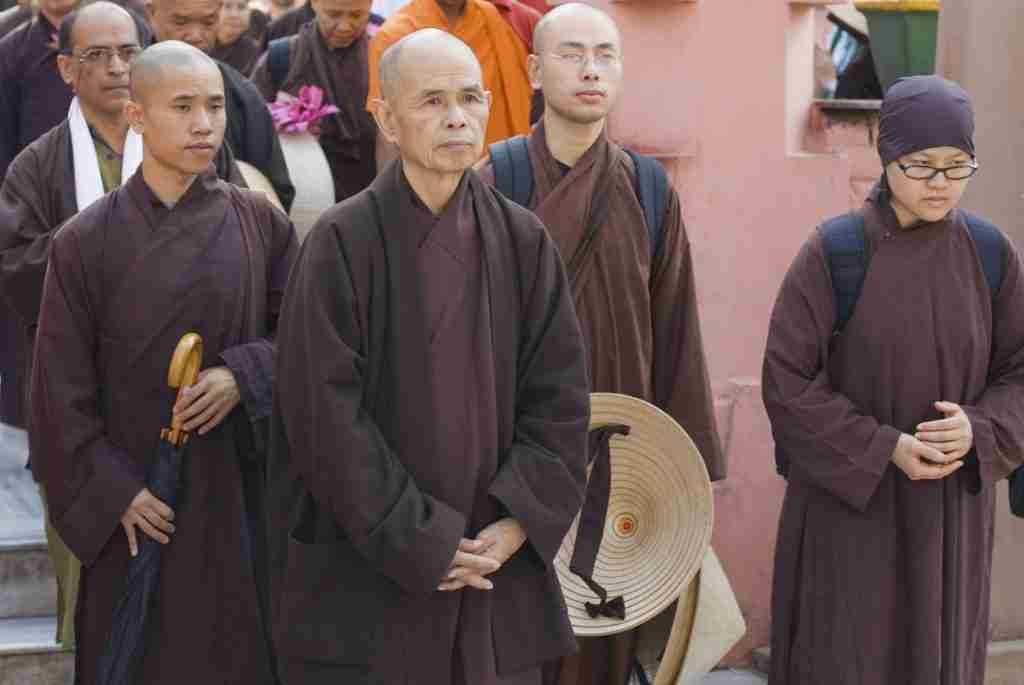“The first element of true love is loving kindness. The essence of loving kindness is being able to offer happiness. You can be the sunshine for another person. You can’t offer happiness until you have it for yourself. So, build a home inside by accepting yourself and learning to love and heal yourself. Learn how to practise mindfulness in such a way that you can create moments of happiness and joy for your own nourishment. Then you have something to offer the other person.”
Thích Nhất Hạnh, How to Love
In his 91 years on earth, Thích Nhất Hạnh gave us many lessons on life, love, spirituality, consciousness and mindfulness. He was born in Vietnam and published more than 100 books in his lifetime. Much like Ghandi, Thích Nhất Hạnh was a bringer of peace and non-violent conflict resolution, as well as a vegan who advocated for animal rights and ending modern slavery. In addition to this, he created the order of Inter-Being and established two monasteries in Vietnam, despite being exiled years earlier. His teachings were mostly Zen Buddhist, but he also integrated Mahayana Buddhist traditions into them. He is often referred to as the “father of mindfulness” and even received a Nobel Peace Prize nomination from Martin Luther King Jr.
Before we explore Thích Nhất Hạnh’s teachings. Let’s start by looking at what love truly is. According to the Websters’ Dictionary it is “an intense feeling of deep affection”, but love is so much more than this. Love forms lifelong bonds, it offers us a sense of connectedness and belonging, it gives us purpose and it often helps us achieve true happiness in our lives. Love is a very complex emotion and state and there are many different types of love, from self-love to romantic love and even compassionate love or maternal / paternal love. One thing we do know – is that Love is a feeling that often gives us a sense of belonging and makes us feel whole.
Thích Nhất Hạnh gave us the gift of understanding the art of self-love and truly loving others. In his book How to Love, Thích Nhất Hạnh states that true love starts with the principle of loving kindness. Loving kindness centres on the practice of offering happiness and kindness to others. Whilst this seems like a simple enough concept – we cannot offer true loving kindness and happiness to others, until we have it within ourselves.
To offer loving kindness and thus find ourselves on the path to true love, we must first learn to heal and love ourselves. Without this, the pursuit of finding true love in any of its many forms isn’t possible. This starts with the practice of mindfulness, whereby we create small moments of happiness and joy for ourselves in our everyday lives for our own nourishment. In doing so, we create something within ourselves that we can offer to those around us.
Central to Thích Nhất Hạnh’s teachings is the premise: “Understanding is love’s other name.” Or in other words, to truly love another, we must first let go of our own ego, expectations and fixations so we can fully understand their suffering (the Buddhist term for the profound dissatisfaction most humans experience at various stages of their lives).
To illustrate this, Thích Nhất Hạnh used the analogy of pouring a handful of salt into a glass of water which renders the water undrinkable. Whereas pouring the salt into a river means that people can continue to use the water to drink, cook and bathe themselves. Our hearts are the glass or the river. If our hearts are small like the glass, because our ability to offer love, compassion and understanding is limited by our expectation of others to change rather than accepting them for who they are, we suffer as a result. By contrast, if our hearts and minds are open, loving, accepting and understanding, we develop the capacity to love truly and deeply and we transform our lives and those of the ones we love.
Thích Nhất Hạnh had many lessons to teach us in is 91 years of life. At their core, his teachings were about letting go of our western attachments, to live in the present and to love ourselves and all beings deeply through openness, kindness, forgiveness and understanding.
Seven lessons in love from Thích Nhất Hạnh
Don’t underestimate the power of a simple act of kindness.
“The source of love is deep in us and we can help others realise a lot of happiness. One word, one action, one thought can reduce another person’s suffering and bring that person joy.”
Thích Nhất Hạnh
Very often we forget that simple acts of kindness can make a significant difference in the lives of our loved one. We need to remember to display these simple acts through small touches, smiles, kind words and our actions daily. In doing so, we can truly demonstrate our love and minimise the suffering of our loved ones.
The greatest gift you can give a loved one is your presence and attention.
“If you love someone but rarely make yourself available to him or her, that is not true love.”
Thích Nhất Hạnh
True love requires our presence and our full attention. So often we become engrossed in the momentum of our daily lives and our own struggles, that we forget to be present and give our loved ones the attention they deserve.
We are more than our sorrows.
“Suffering is not enough. Life is both dreadful and wonderful…How can I smile when I am filled with so much sorrow? It is natural – you need to smile to your sorrow because you are more than your sorrow.”
Thích Nhất Hạnh
It is easy to become so engrossed in our own sorrow that we can no longer see all the good there is around us. Life can be hard and challenging but it is also beautiful, surprising and incredible. We must remember to take the time to revel in the marvels of the world around us and be grateful for all the good in this world.
Blaming has no positive effect at all.
“When you plant lettuce, if it does not grow well, you don’t blame the lettuce. You look for reasons it is not doing well. It may need fertiliser, or more water, or less sun. You never blame the lettuce. Yet if we have problems with our friends or family, we blame the other person. But if we know how to take care of them, they will grow well, like the lettuce. Blaming has no positive effect at all, nor does trying to persuade, using reason and argument. That is my experience. No blame, no reasoning, no argument, just understanding.”
Thích Nhất Hạnh
Oftentimes when we have relationship troubles (including with ourselves) we look for reasons to place blame and criticise others for their part in the breakdown of the relationship. This is ultimately one of the most destructive mistakes we can make. Instead, if we focus on how we can love and care for them and how we can be a part of the solution – we move away from blame to true love and understanding.
True love is free of bonds.
“If our love is only a will to possess, it is not love. You must love in such a way that the person you love feels free.”
Thích Nhất Hạnh
Love is not about ownership or possession. It is about two souls making a choice to care for, love and understand each other. If we feel the need to possess or limit another then we cannot truly love them and they cannot truly feel loved.
All we have is the present.
“The past is gone, the future is not yet here, and if we do not go back to ourselves in the present moment, we cannot be in touch with life.”
Thích Nhất Hạnh
By dwelling on the past or fixating on the future, we limit ourselves and we cannot truly be present or in touch with the now. In doing so, we also limit our ability to truly love and be loved by others.
Love’s only interest is to love.
“Through my love for you, I want to express my love for the whole cosmos, the whole of humanity and all beings. By living with you, I want to learn to love everyone and all species. If I succeed in loving you, I will be able to love everyone and all species on Earth… This is the real message of love.”
Thích Nhất Hạnh
Love has no agenda, no rules, no outcomes. Its only interest is for us to love and be loved. Love exists purely for our enlightenment. It eases our suffering, offers us a sense of purpose and generates a collective consciousness of understanding.
Honouring Thích Nhất Hạnh, Buddhist monk, peace activist, prolific author, poet, teacher and founder of the Plum Village Tradition, historically recognised as the main inspiration for Engaged Buddhism.
Born 11.8.1926 Hue, Vietnam – Died 22.01.2022 Từ Hiếu Pagoda, Hue, Vietnam


